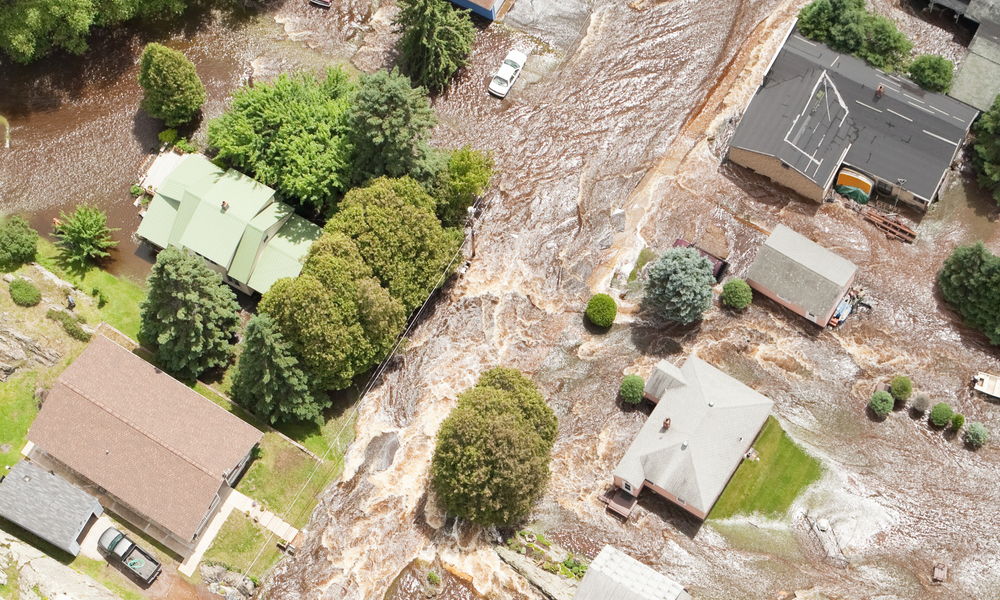
UBC engineers have consulted with 22 Okanagan communities to develop recommendations and best practices to improve flood resilience which could limit potential damage.
While infrastructure clean-up and repairs continue across the province after the extreme weather events of 2021, UBC Okanagan researchers have created measures to help municipalities mitigate damage from future climate-related disasters.
“Communities across British Columbia have established strong policies and strategies to prepare and limit damage due to these extreme events, but policies related to post-disaster management are still in their infancy,” says Sadia Ishaq, a doctoral student in UBCO’s School of Engineering and lead author of a new paper that examines municipal risk management strategies.
Climate change is attributed to anthropogenic activities and is characterized by a rise in temperature, rainfall and drought, explains Ishaq. The effects of climate change are a precursor for a large number of natural disasters, particularly floods, which can cause substantial damage.
In Canada, flooding is the costliest natural disaster and insurance damages from floods exceed $1 billion a year.
In BC, floods are recognized as one of the most common hazards and municipal authorities have the primary responsibility for flood risk management, Ishaq says. That risk management includes establishing flood resilience through infrastructure, mitigation and preparation measures.
Ishaq, working alongside Civil Engineering Professor Rehan Sadiq’s team of researchers, reviewed the policies and local regulations of 22 organizations in the Okanagan Valley. The goal was to develop recommendations and best practices to improve flood resilience of these communities.
“Being flood-resilient when it comes to policy-making means these organizations are becoming more effective when they need to implement a communities’ adaptation and recovery from unexpected disasters,” she says. “This allows them to focus their efforts on people as well as infrastructure in the moment.”
Together with partner municipalities, regional districts and First Nations communities, the researchers examined opportunities to strengthen flood resilience through policy-making.
They determined that local regulations for many Okanagan communities include extensive flood prevention measures, but not flood recovery.
For example, many municipalities are proactively addressing looming flood risks and are enacting essential policy measures to strengthen resilience through spatial planning, building construction setbacks, enhancing natural environment, protecting riparian areas and stormwater management.
Regions across the country are sharing best practices when it comes reducing damages and risks through building up flood resiliency. However, Ishaq suggests that communities in the Okanagan could do a better job of collaborating and information sharing.
While the paper’s findings have specific implications for the Okanagan Valley, they can be effective for regions around the world facing the same challenges.
“Governments must continue to integrate sustainable watershed management, adaptive strategies for land use planning, zoning bylaws, and infrastructure development plan with low-impact development in order to address these challenging circumstances,” Ishaq says.
The research builds upon a larger project prepared earlier this year for the Okanagan Basin Water Board (OBWB) entitled Analysis of Flood (Resilience) Policy/Planning Tools in the Okanagan Valley. It was supported by the OBWB and UBCO’s Green Construction Research and Training Centre.
This research work was conducted in the UBCO’s Life Cycle Management Lab and appears in the November edition of the Environmental Reviews journal.